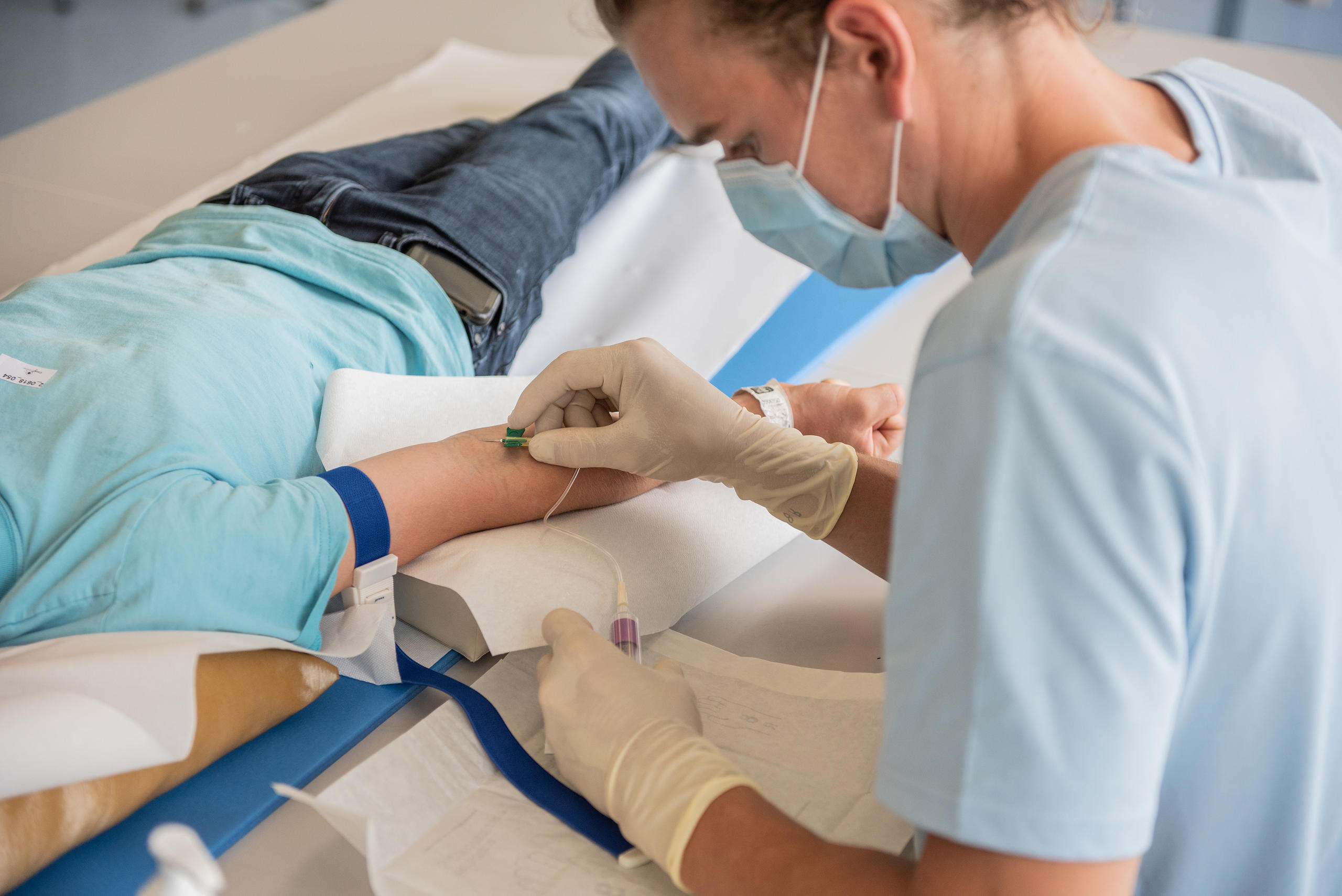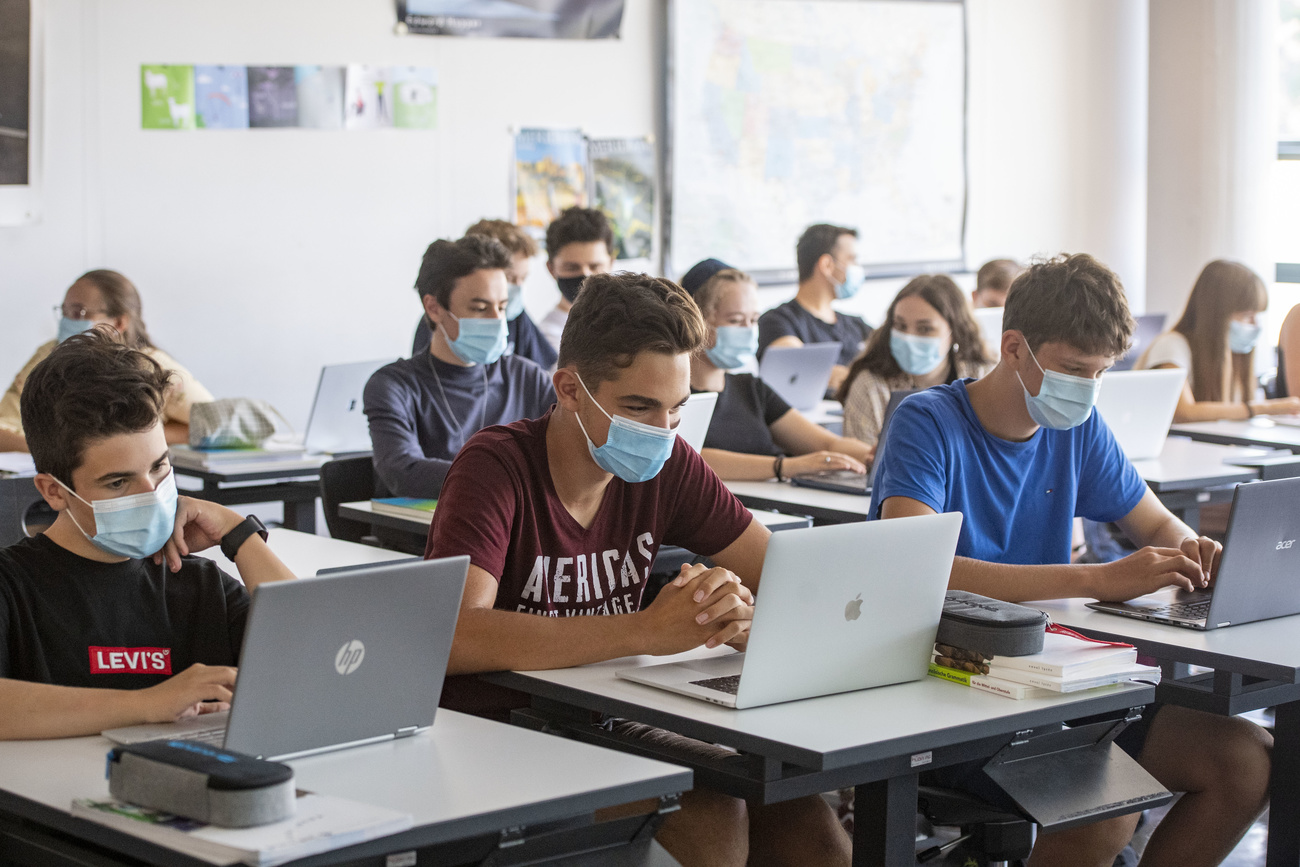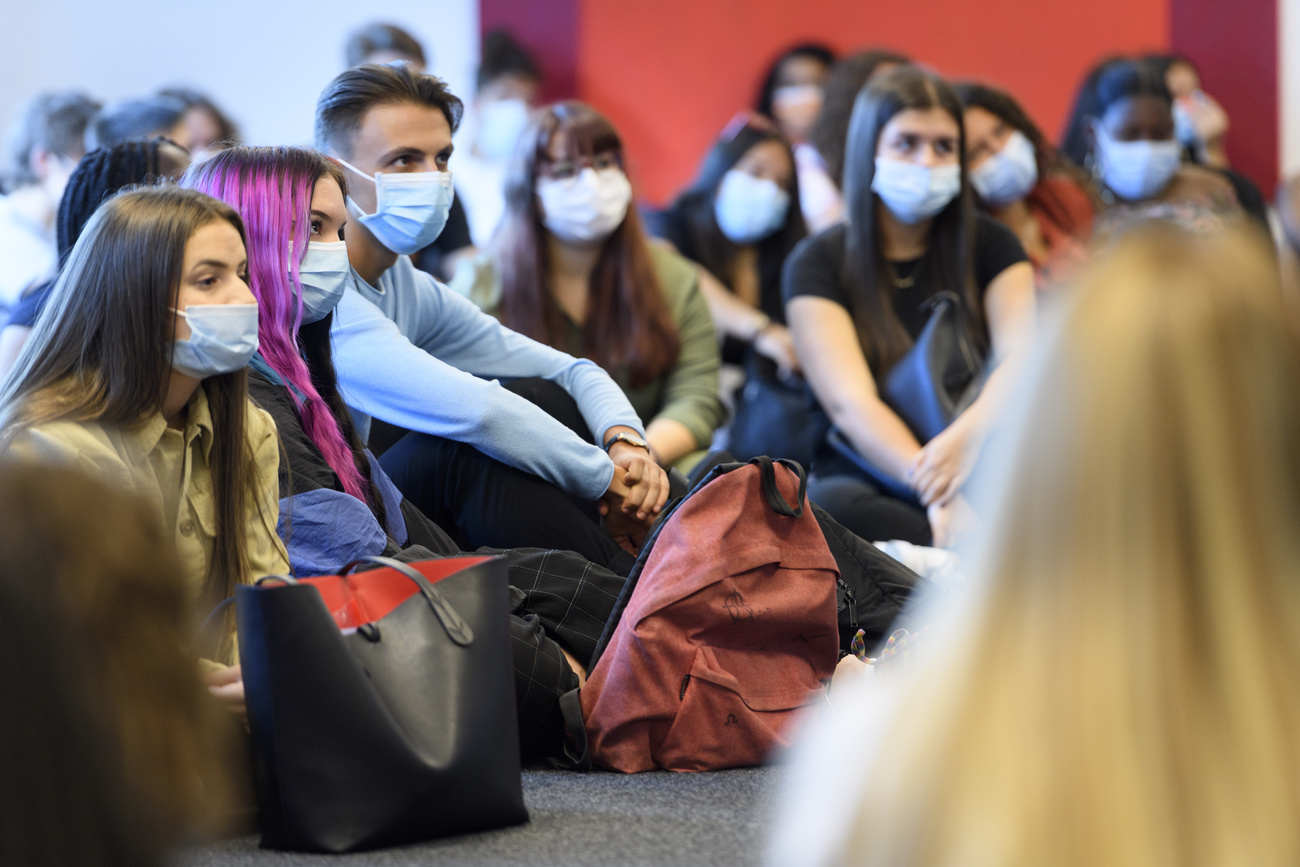
Study: no corona infection clusters in canton Zurich schools pre-summer

There was no clustering of Covid-19 infections in schools in canton Zurich before the summer break, an antibody study has found. The results come at a time of increasing debate over the role of children in spreading the virus.
The University of Zurich (UZH) tested 2,500 children across the canton from mid-June to mid-July 2020 to see if they had previously been infected – and therefore developed antibodies to the coronavirus – during the early onset of the pandemic.
Corona tests: difference
A diagnostic coronavirus test looks for signs of an active virus. An antibody (serology) test looks for whether your immune system has responded to the infection.
On May 11, compulsory schools across the country reopened their doors after an eight-week national lockdown to stop the spread of the virus.

More
How can schools best protect pupils during corona times?
The Ciao CoronaExternal link project found several points of interest: first, 2.8% of children tested – or 28 out of 1,000 – displayed antibodies against the novel SARS-CoV-2 coronavirus, according to the first results released on Thursday. This was about the same percentage as among a randomly selected sample of adults from the same region in July 2020.
Second, symptoms were not very specific: some fever or coughing, or an upset stomach. This made it harder to find the infected children. “Over the period examined, 73% of the schoolchildren exhibited possible Covid-19 symptoms, but children who tested negative for SARS-CoV-2 presented such symptoms just as frequently as those who tested positive,” said study leader and university epidemiologist Susi Kriemler in a statement.
No clusters, but caution advised
There was no clustering of cases within schools and classes. Out of 100 classes, 67 had no single infection, 29 had one case, three had two cases and one had three cases. These findings, the statement said, support the current hypothesis that children rarely get infected at school and are likelier to contract the virus in other settings, such as the family.
However, the authors also advised caution in interpreting the results. “Due to the lockdown, the children physically attended school for only a relatively brief two-month period between the onset of the novel coronavirus and the first stage of testing. During this acute phase, they were arguably more likely exposed to the virus in the family setting. We have to wait for the next testing stages before we can make reliable statements,” said Milo Puhan, director of the Epidemiology, Biostatistics and Prevention InstituteExternal link of UZH and the initiator of the study, in the statement.
The study also found that younger children, aged 6-9, were infected just as often, or even a little bit more, as older ones, “contrary to prevailing current opinion”. The authors explained this by the closer physical contact with their parents and other adult relatives.
More testing to come
Further Ciao Corona testing of pupils will take place in autumn this year and spring 2021 (parents and school staff spring only). This, researchers hope, will help them understand whether and how the coronavirus is spreading within schools and families, and also what kind of symptoms children have.
The study, part of nationwide immunity research programme, is also looking at whether measures in schools – masks are not required for pupils in primary schools but there is a strict hygiene concept – are effective and whether post-infection protection against re-infection exists.
Participation, which involves giving blood or saliva samples and answering health questionnaires, is voluntary.
Debate
Experts in Switzerland (and globally) have been questioning the role of children in passing on the virus, as cases in schools continue to be reported in the autumn term.
Parents have also said they are in a dilemma about what to do if their children display cold symptoms, very common among during these months.
Currently the Swiss authorities do not consider the under-12s to be drivers of the pandemic and they are not routinely tested.
Earlier this month, Geneva virologist Isabella Eckerle called for more testing and obligatory mask wearing for younger children at school

More
Virologist calls for more tests, masks for children

In compliance with the JTI standards
More: SWI swissinfo.ch certified by the Journalism Trust Initiative
















![The four-metre-long painting "Sonntag der Bergbauern" [Sunday of the Mountain Farmers, 1923-24/26] had to be removed by a crane from the German Chancellery in Berlin for the exhibition in Bern.](https://www.swissinfo.ch/content/wp-content/uploads/sites/13/2025/12/01_Pressebild_KirchnerxKirchner.jpg?ver=bb19e376)















You can find an overview of ongoing debates with our journalists here . Please join us!
If you want to start a conversation about a topic raised in this article or want to report factual errors, email us at english@swissinfo.ch.